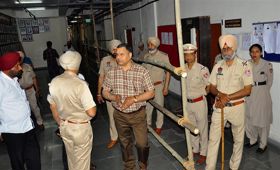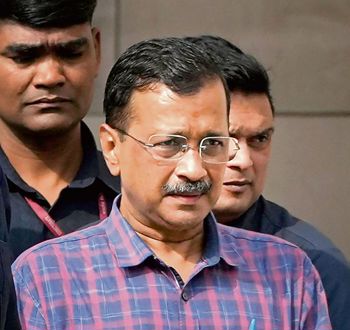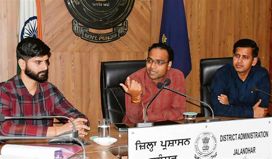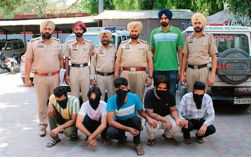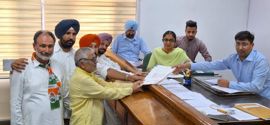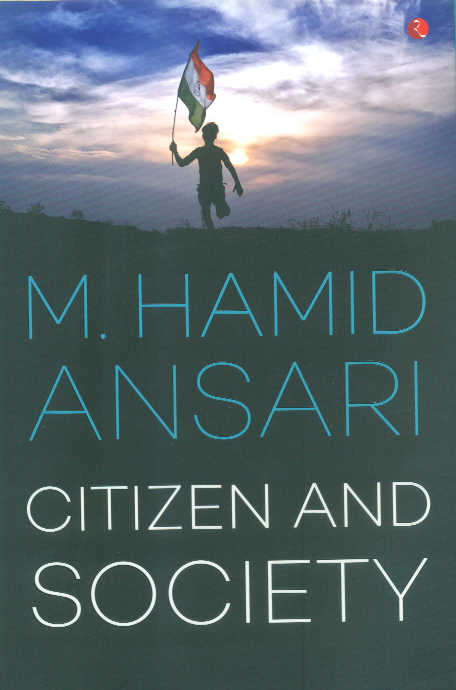
.
Harish Khare
THE office of the Vice-President of India is probably the most inconsequential office under the Constitution of India. Except when presiding over the Rajya Sabha, a vice-president has very little to do. But the vice-presidency itself offers a formidable pulpit and M Hamid Ansari has made full use of it, that too in a very, very effective manner.
The result is Citizen and Society, a collection of speeches and talks Ansari Saheb has delivered since August 2007 when he first got elected as Vice-President of the Republic. Put together, these reflections make a substantive collection. It is a collection that every serious Indian must have on his/her bookshelf.
Ansari Saheb is an unpretentious and non-flamboyant man, and he is a deeply thoughtful human being. Every page in Citizen and Society reflects his personality: sober and refined articulation of historical forces, ideas and personalities. That means a certain kind of intellectual fortitude, to not be easily compromised by the glib and noisy formulations of the day.
Take, for instance, his reflections on the 1965 India-Pakistan war, which he summed up as being “a costly military and political misadventure for Pakistan.” He also observes that “purely bilateral wars are unlikely in our times.” And then, he concludes by quoting the historian Paul Kennedy on the choices of war and peace faced by the modern leaders: “To be a Great Power demands a flourishing economic base. Yet by going to war, or by devoting a large share of the nation’s ‘manufacturing power’ to expenditures upon ‘unproductive’ armaments, one runs the risk of eroding the national economic bases, especially vis-à-vis states which are concentrating a greater share of their income upon investment for long-term growth.”
This simple, no-nonsense historical lesson could well be a timely and relevant lesson for us in these fashionable times of fashionable talk of confrontation, conflict and war.
The theme of the Citizen’s rights and space vis-à-vis the State animates these pages. Again, in these times of conformity and self-censorship, Ansari Saheb reminds us of a simple but powerful obligation: “Every citizen of the republic has the right and the duty to judge. Herein lies the indispensability of dissent.”
In these pages, Ansari Saheb comes across as an unrelenting voice in pursuit of cultural, religious and political plurality, as crafted into our constitutional fabric by the Founding Fathers. The theme of unity and diversity is masterly woven in page after page. In a 2009 lecture, he addressed himself to the Muslim community and told it that “the need for segregating harmful social customs from religious law per se does stare the community in the face and seeks a response; so does the precedent set by a number of Muslim countries to codify the law relating to marriage, divorce and succession.” And, he invoked Allama Iqbal’s phrase — “voluntary surrender of intellectual independence” — to chastise the community that “self-imposed isolation” was not an answer.
In the same breath, he argued for “a sincere, unconditional and uninterrupted dialogue among communities.” Indeed, he insists that “all segments of society, majority and minority, have a national duty to do so:
Mere ahl-e-watan ye aadmiyat ka taqaaza hai,
Muhabbat ka, sharaafat ka, hameeyat ka taqaaza hai.”
The basic point that I wish to make is that not a single piece in this collection is boring, or boringly long. Not only is each piece laced with insights from history, it is also spiced up with Urdu couplets. That alone makes this a very rich and rewarding fare.
A professional engagement took me to Srinagar last week. Though the things in Kashmir seem to have subsided quite a bit, the ‘normalcy’ is far from normal. The taxi that came to pick me at airport had a window broken. A casual victim of the ongoing random and erratic incidents of stone-throwing. Every time I stepped in the car, the cardboarded-up window was a reminder of the turmoil under the surface.
Between engagements, I could snatch some time to visit the magnificent temple atop the Shankaracharya Hills. The weather was absolutely gorgeous. One hour of the climb felt wonderfully reinvigorating. And, those 238 steps did not appear so forbidding.
What was disquieting was the total quiet. I had the road all to myself. Evidently, I was the only pilgrim. A shrine which this time of the year is generally thronged by hundreds of devotees wore a deserted look. The security people told me that the previous day there were only a dozen visitors.
I could spend as much time as I wanted inside the sanctum sanctorum. The lingam casts a magical spell and an unspeakable serenity envelops the humble visitor. Worth a visit any time of the year.
IT was quite an advertising coup for a pan masala company to get Pierce Brosnan, the James Bond man, to do a bit of selling for it. The TV ads in particular made quite an impact. Of all the men who have played James Bond, Brosnan stands out for his elegance, style and panache. And, perhaps, it is these attributes that the pan masala company sought to tap for its product.
It is a different matter that the James Bond actor has sought to distance himself from the ad. The controversy has taken the fun out of this engagement.
Nonetheless, it is emblematic of a new confidence that we Indians have come to acquire in our own capacity: We can hire the services of a white man to do a spot of selling for so ‘desi’ a product as pan masala.
I would think that this confident streak was first unveiled in 2007-2008. The UPA government had engaged the services of Professor Robert Blackwill to ‘sell’ the Indian case on the Indo-US nuclear agreement to the American legislators. What is interesting is that Professor Blackwill was United States’ Ambassador to India till a few years earlier. The decision to engage a former ambassador as a lobbyist was a groundbreaking innovation.
From Blackwill to Brosnan, India can and will hire the ‘white man’ to do our bidding.
ANOTHER Diwali is round the corner. It is a festive occasion to seek Goddess Laxmi’s blessings and bounty. By now, it has also got established as a time for that somewhat dubious ritual of “gifts.”
It is one thing for friends and relatives to exchange gifts in a spirit of festive benevolence. This exchange is a reciprocal transaction of love and affection.
But over the years, Diwali has been converted into a legitimate excuse for giving “gifts” to those who are considered powerful. Many corporate houses and businessmen feel obliged to send costly gift hampers to bureaucrats, politicians and journalists.
Diwali always puts the journalist in a bit of a bind. To refuse a gift seems graceless and churlish; an acceptance carries with it a feel of a transaction. Questions are often asked about the journalist’s ethics. Many years ago, a corporate house had dumped an ipad for me at my residence. Being technology-challenged, I had no use for it and gave it away to our computer mechanic. A few years later, that corporate house came under the scanner and a ‘list’ was discovered. The list contained names of many prominent journalists and editors. My name was also in that list. Insinuations were aplenty.
The disquieting assumption is that a journalist’s integrity can be purchased with a box of barfi or a suit length or an ipad during Diwali time. We do live in strange times.
Diwali is time for mithai, and let me tell you that barfi goes very well with coffee. Join me.





















